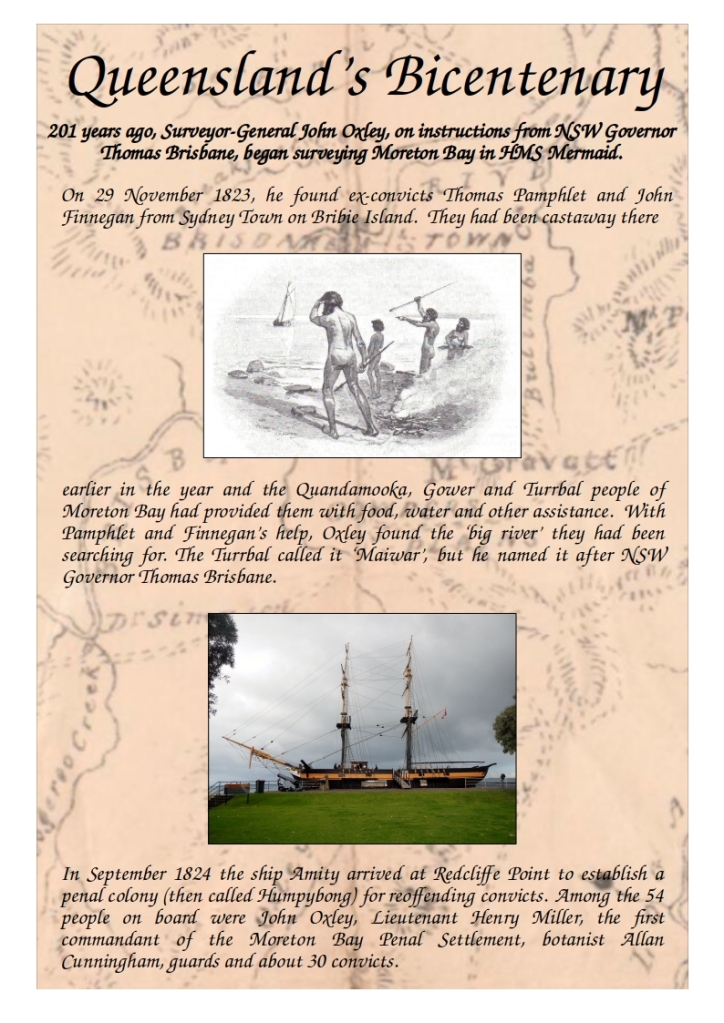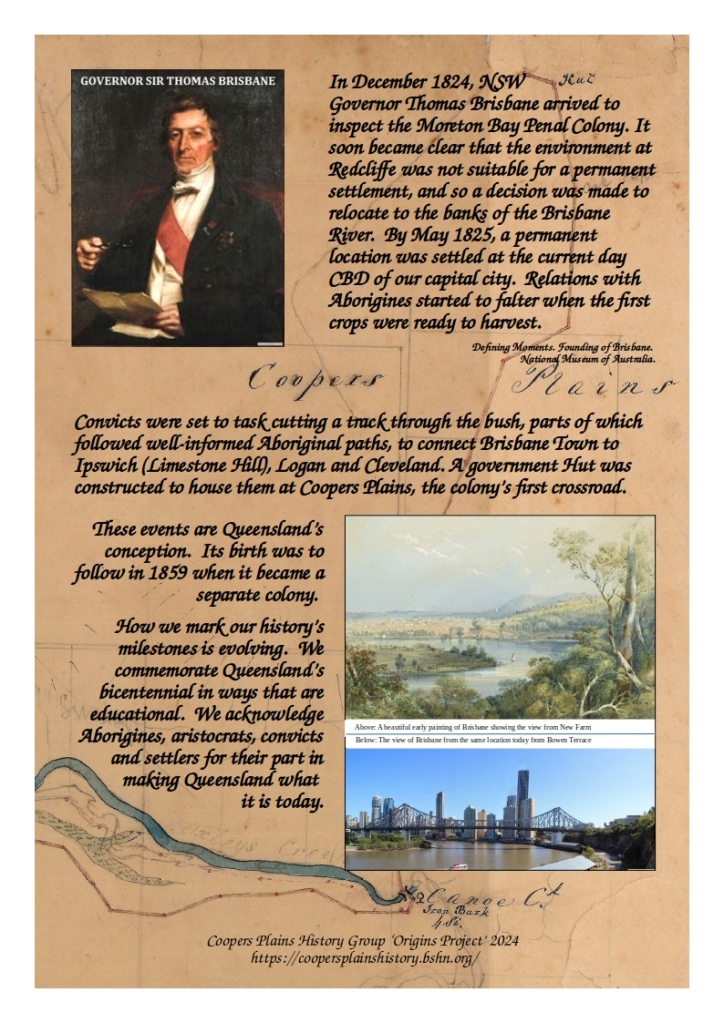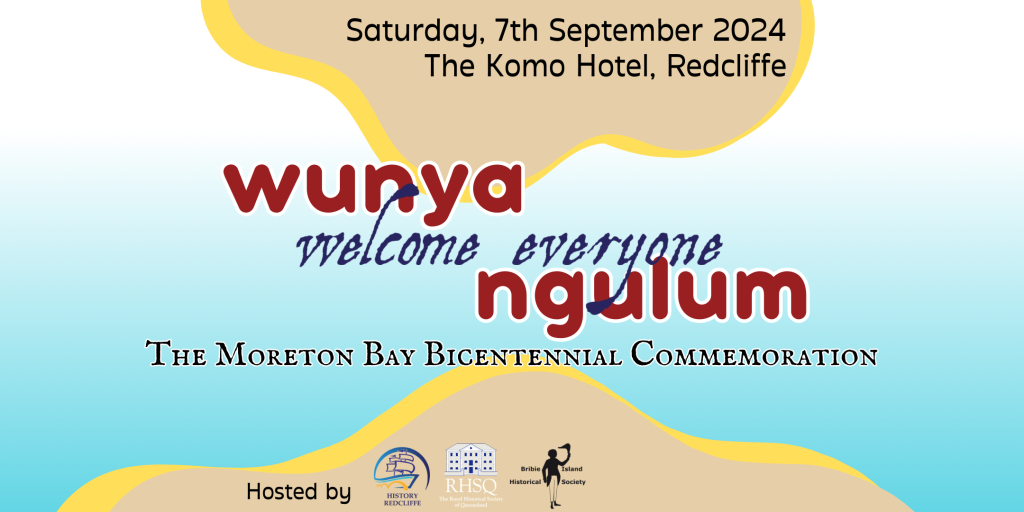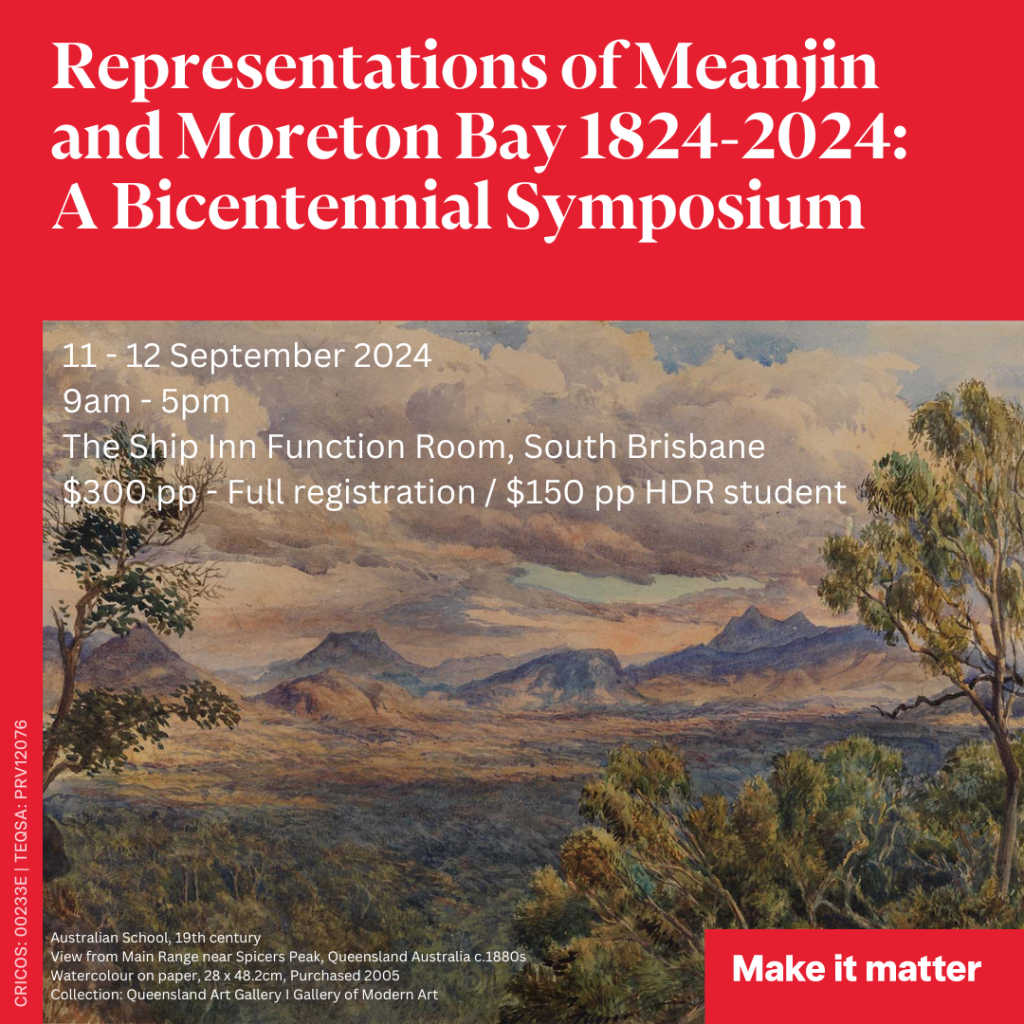The Bicentenary Few Seem To Care About
The Queensland state government is ignoring its 200th birthday. Jubilees like this were high-profile in the recent past.

These events were the conception of what would become Queensland and its capital, Brisbane.

There are two events being held by local history groups:


The Queensland State Government is ignoring the milestone, believing it to be a political hot potato. This is cowardice and will only result in cultural amnesia. It undermines the culture of both Aborigines and British-descent Australians. This is how multiculturalism is causing a destructive transition in Australia rather than a creative evolution. We have overloaded ourselves with issues.
A fascinating history and the most interesting of learnings are being forgotten.
For example, why was agriculture a crucible in relations between Aborigines and the British? This is hard question to answer, but here’s my best shot:
Initially there was a free exchange of gifting between the Aborigines and Settlers – fish and fodder for blankets and haircuts, etc.. However, the British were intent on expanding their presence. The modern expression of this is economic growth.
It seems the Aborigines didn’t stop to think of how much work it took the settlers to plant a crop of corn. When it ripened, they helped themselves to it. Nature provides for hunter-gatherers. Yet the Aborigines, too, knew how to tweek [sic] it to their advantage. So there was potential for knowledge-sharing.
In history, the Agricultural Revolution only took hold where multiple conditions made it easy; moderate climate and fertile river plains at crossroads of diverse human groups. It brought hardship, social stratification and power over the environment and neighboring tribes. It enabled planning and development. The Australian continent didn’t have those conditions in as much abundance.
When the British arrived in Australia, it was the meeting of a stone age people and a civilization on the cusp of industrialization – the first one. They couldn’t have been more different in development. It is remarkable it went as well as it did, given earlier precedents. It is hardly surprising the British presumptuously expected to ‘bring civilization to the Aborigines’, but if they were to succeed in bypassing millennia of socio-cultural evolution (in less destructive ways than they did), the benefits would have to have been made more apparent. How did they produce blankets and scissors? Instead of getting angry and fighting, what if the settlers had shown the Aborigines their methods of production?
What a naive fantasy. The Moreton Bay settlement was a penal colony. British aristocrats exploited, criminalized and conscripted their working class into the business of building up the Empire. Many convicts absconded into the bush and re-emerged after months living with Aborigines and yet only a few stories have survived, such as William Buckley, who lived with the Wallarranga tribe near present day Barwon Heads, Victoria for 32 years. Their testimonies, such as The Adventures of William Buckley, are few and far between. Imagine if their trials had been anthropological investigations, how much might have been learnt? The free exchange of goods might have also been a two-way street of knowledge. Another fantasy and yet the ignorance of the limited natural carrying capacity of this land is as widespread now as it was then.
I grew up spending weekends at Barwon Heads. I have only just learnt it was where William Buckley spent so much time. I’m astounded at how little I know my own culture and history and how rich it is. My family wasn’t exceptional and neither is Australian society, it seems. But we are unique (as are all peoples) and we should savour it. The year-long celebrations of the centenary of Australian Federation in 2001 was a brilliantly enriching exercise.
Hindsight is all very well and yet it is hindsight that is instructive. Agriculture was a crucible between Aborigines and the British because it was the nexus of material struggle and ambition. Economic growth without a modicum of modesty becomes destructive. When will the economy ever be big enough? The limits to growth are apparent from the damage it does to the environment and people. Were growth a qualitative creature rather than a quantitative animal, we would see more benefits.
